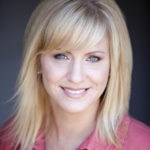It was January 2004 when I found it.
I’d been talking to larger and larger audiences about sex for several years — and I was growing bored. How many times could I say the same things about sex? Good grief! This exciting topic was becoming mundane.
My spirit just felt like there had to be something more. Maybe you’ve been there, bored as you hear yet another sexual purity message drone on. Perhaps even good messages have left you wondering why. “Doesn’t anyone else wonder why everyone is doing the Silver Ring Thing?” We’ve all heard so many trite clichés through the years. “It’s a gift you can only unwrap once” and “You can become a recycled virgin” come to mind. Something in me just doesn’t like the idea of comparing virginity to a milk carton. But all these repeated messages about “protecting God’s gift of sex” still leave many wondering why! Why does God want it protected? Without the answer to that question, the rest of our questions about sex are difficult to address. I got to a place where I knew that answering the why question was critical to convincing my brothers and sisters in Christ to wait.
Here’s what I did when I got to that place: I simply prayed, God, blow me away! If I have to keep talking about this, then blow me away with something new that shows me why sex is amazing to You. He did.
A few weeks later, I was reading through Genesis, when I came to these seemingly innocuous words: “Adam lay with his wife Eve, and she became pregnant” (4:1). I’d read over those words before without giving them a second thought. Not this time. I caught the scent of something being not quite as it seemed. For the first time, it occurred to me: “He was so not just lyin’ there!”
Clearly this was not one of Adam’s more passive moments.
Sometimes the Bible makes a lot more sense if you look at it from the perspective of the original writers. So I decided to take a look. I grabbed a Hebrew dictionary and dug through it with passion.
What was the word the Hebrew writer used in that sentence? I had to know. Scanning, searching, looking … there!
There it was.
The Hebrew word for sex.
How fascinating.
Of all words!
Yada.
As in, “Yada yada yada”?
Yes!
Adam lay [yada] with his wife Eve, and she became pregnant and gave birth to Cain (Genesis 4:1).
You’ll never hear that word the same way again. How amazingly ironic that this Hebrew word for sexIt would be overstating the case to say that each biblical occurrence of yada speaks of God-honoring sexuality. It is used in other instances, as I share later in the book. But I believe that the word yada points to the nuance of deep experiential and emotional knowledge, and I prove that as you move through the book. — a word that sends nearly everyone into laughter at some point in their lives — is most often used today to communicate a sense of boredom. Merriam-Webster.com defines it as a noun that means “boring or empty talk.” “Yada yada yada” could just as well mean “blah blah blah” in our society.
Turns out it’s not so boring after all.
And in Hebrew it’s a verb — an action word and then some!
So what does it really mean?
The definition of the Hebrew word yada is “to know, to be known, to be deeply respected.” What an amazing thing God thought about sex. That it was to be something that causes us to deeply know another. Without alluding directly to the physical act of sexuality, this word points to the deep emotional quenching I yearn for in the act of sex.
I’m not alone.
Almost every female I’ve spoken to about this admits she isn’t really yearning for a physical touch in her sexual encounters but is seeking a deep emotional caressing. We want to find our guy looking at and studying us. We want to hear our name whispered. We need him to listen to our words with all his heart. We want to “be known.”
I really think I began to feel known by my husband when he was still my boyfriend. You’ll probably laugh at my “eureka!” moment. You see, I’m an avid fan of hard-scooped vanilla ice cream drenched in hot fudge and topped off with bananas, nuts and whipped cream. Not one ingredient can be omitted or substituted. (No soft serve!) One night during finals week, at about midnight, I was studying when someone knocked on my door. It was a fellow dorm resident bearing a gift for me: a perfectly crafted vanilla ice cream, hot fudge, banana, nut and whipped cream sundae — with a note from Bob. Better than studying for his finals, my soon-to-be fiancé had been studying me. And I felt known in a way that began to draw my heart into his.
The latter part of the definition of yada — respect — tends to resonate with men. They want to know they have what it takes to receive your admiration. They yearn “to be deeply respected.” I’ve asked men from my hometown of State College, Pa., to the hidden corners of Africa what they want most in a relationship. Every one of them answers, “Respect.”
I’ve learned that I best respect my husband by affirming him and what he does. When we were in college, Bob was making money on the side by selling synthetic “shammys” at flea markets. (Yep, just like the ShamWow guy! Don’t be too quick to laugh. He had a ministage and sound system to demo the product, which he did in a hilarious and entertaining way. As a result, people bought his product by the armful, and he was making enough money to have several employees and buy himself a white sports car.) Introvert that I was (and am), I agreed to demo his product at the local Amish market. Something as simple as helping him sell his goods created a powerful physical and emotional drawing. He wanted me all the more because I acted in such a way that said, “I see what you do, and I respect you!”
I guess what I’m trying to say is this: hot fudge sundaes and shammys at an Amish market might not seem to have much to do with sex, based on the world’s presupposition that sex is primarily physical, but an emotional knowing and deep respect are essential ingredients to an intimate, lifelong connection.
Mingle the two — an emotional knowing and a deep respect — and you have yada.
Excerpted from What Are You Waiting For? by Dannah Gresh Copyright 2011 by Dannah Gresh. Excerpted by permission of WaterBrook Press, a division of Random House, Inc. All rights reserved.












